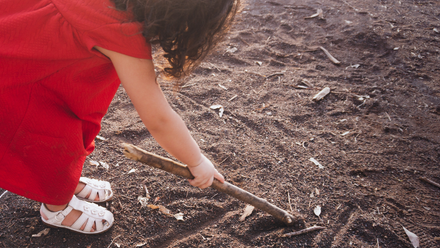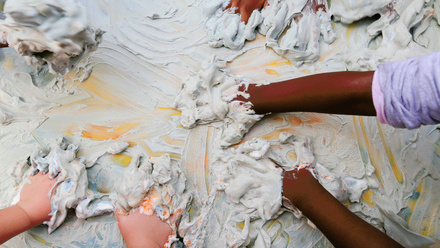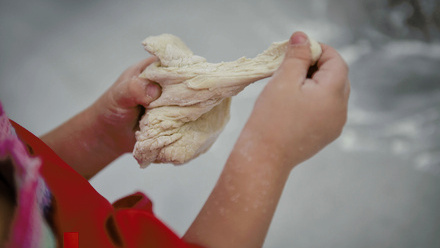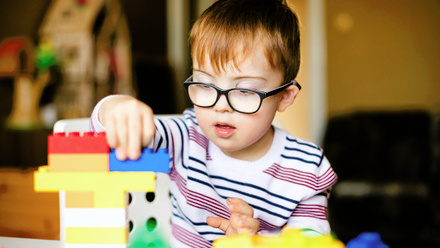The first 1001 days: why early education and care matters
When we talk about early education and care, we broadly refer to a child’s initial experiences of the world and the learning that takes place within them. We know that the early years are a crucial time to provide a child with the best start in life and this can be done in several vital ways. But when does it all start?
The 1001 Days Movement is a campaign that works to increase the recognition of just how important the infant years are to our continued development and learning through life. Its work highlights how baby’s brains are in a state of extraordinarily rapid growth that starts from the moment of conception. As professionals in the sector, it is our duty to understand how important this time is and do everything we can to ensure they are 1001 supported days that enable children to flourish.
This article will explore:
- What is so important about the first 1001 days?
- How can we best support the first 1001 days?
What is so important about the first 1001 days?
Whilst commonly perceived that a child starts learning from the day they are born, the reality holds an unbelievable insight into how time in the womb holds the key to rich learning experiences later on in life. A baby’s sense of self, understanding of the world and emotional place within it grow on the seeds planted in these first 1001 days. This time refers to the approximate time between conception (when a child is conceived, the process of ‘becoming’ pregnant) and their second birthday.
In the first year of life, babies’ brains double in size. They start to hear things from 24 weeks after conception. By 34 weeks, they can distinguish between sounds and voices. The first 1001 days include a vital time of growth during pregnancy that become the first foundation block in their development, wellbeing and learning beyond. By the time a baby is taking their first breath, they will have already spent around 280 magical days developing millions of neurons every second, growing in every way.
The zero to two age range is severely under-researched within early education and care, yet the research that is available all points to the immense impact of this phase on a child’s well-rounded development. In fact, according to the Parent-Infant Foundation, children’s development at 22 months has been shown to predict their qualifications at age 26.
The first 1001 days have an incredible impact that makes early education and care provisions even more essential to setting children up on the best trajectory for their futures.
How can we best support the first 1001 days?
The first 1001 days campaign places emphasis on the time from conception to age two. As early education and care professionals, there are many ways we can work to support children, their families and the wider community to create an enabling environment for children to thrive.
Strong relationships with parents/carers are key
Bringing a baby into a family is a life-changing event, whether there are older siblings around or not. Every family is different, with different strengths and challenges. Early education and care provision, whether childcare settings, family support provisions or other facilities for early years work are often a ‘first port of call’ for families so it is important that we provide a warm, welcoming space to support families throughout.
Some things you can do:
- Host new community events, like baby massage groups or coffee mornings, to get to know your local families and their individual needs.
- If children in your workplace are expecting a baby sibling, reach out to parents/carers to support this exciting new step: from transitions for older siblings to expectant parent advice.
- Some families are busier than others and it is important to remember that lack of engagement is not always a sign of a lack of love. Keep your communication accessible by using factsheets like these at handover.
Understanding physical health, nutrition and safety
Physical care refers to the care of the physical body, including what we eat, our oral health, our physical fitness, and keeping ourselves (and the environment) safe and clean. Ensuring a safe, healthy and fulfilling environment is everyone’s responsibility and professionals can play an important part in providing support to families around the best advice for their babies.
Whilst we all agree that every child should be given healthy and safe opportunities, specific guidelines and legislation might differ depending on your location, so do check these out.
Some things you can do:
- Promote events that encourage activity, such as ‘Walk to School Week’ campaigns.
- Hold your own opportunities to share information throughout the setting, such as ‘healthy snack of the week’ recipes and short activities that can be tried at home.
- Create fun ways to implement care routines into daily practice, such as brushing teeth together after lunch or encouraging children to help with garden checks before playtime, to develop a stronger sense of safety and independent thought around risks.
Pay particular attention to the unique nature of the first 1001 days
The first 1001 days take both child and parent/carer through a life-changing transition and it’s important that we recognise just how precious this is. The first 1001 days are a monumental transition for parents/carers, who are navigating a new life and learning the intricacies of their baby, whilst their baby is developing at such an extraordinary rate that they are becoming a new person every single day.
When offering support, you are not only paying attention to their needs in the moment, but pre-empting rapid changes, whilst catching up on everything that has happened since. It’s a tricky balancing act but keeping conversations open and honest can really help to understand the priceless nature of the first two years.
Key takeaways
Within the sector, particular attention is paid to the ‘talking and walking’ child – the three-year-old child. The zero to two age bracket is underrepresented in current research but, by understanding the theories surrounding the true importance of the 1001 days can help us to recognise their incredible nature and harness the exponential growth a child makes in the first 1001 days of life.






